Table of Contents
- Your Gut and Brain Are Constantly Texting Each Other
- How Being Backed Up Messes With Your Body Chemistry
- When Internal Pressure Gets Out of Hand
- When Your Body Says ‘Enough!’ – Why Some People Actually Throw Up
- What This All Means for You
TL;DR
- Your gut has its own “brain” that talks directly to your actual brain – when you’re constipated, it’s basically spam-calling your brain with distress signals, which is why you feel nauseous
- Being backed up screws with important brain chemicals like serotonin and GABA, creating imbalances that make you feel queasy and anxious
- All that waste sitting around creates toxic buildup that your brain recognizes as dangerous, so it triggers nausea to protect you
- Severe constipation can literally squeeze your organs and mess with your breathing, which your body interprets as a threat
- In really bad cases, your body might make you throw up just to relieve the pressure – it’s like an emergency reset button
Constipation affects millions of people worldwide, with the NHS reporting that “15% of adults under 60 regularly experience symptoms of constipation, a number that rises to 33% over this age” Woman and Home. But here’s what most people don’t realize – that queasy, nauseous feeling that comes with being backed up isn’t just because you feel “full.” There’s actually some pretty wild stuff happening inside your body that explains why constipation makes you feel sick all over.
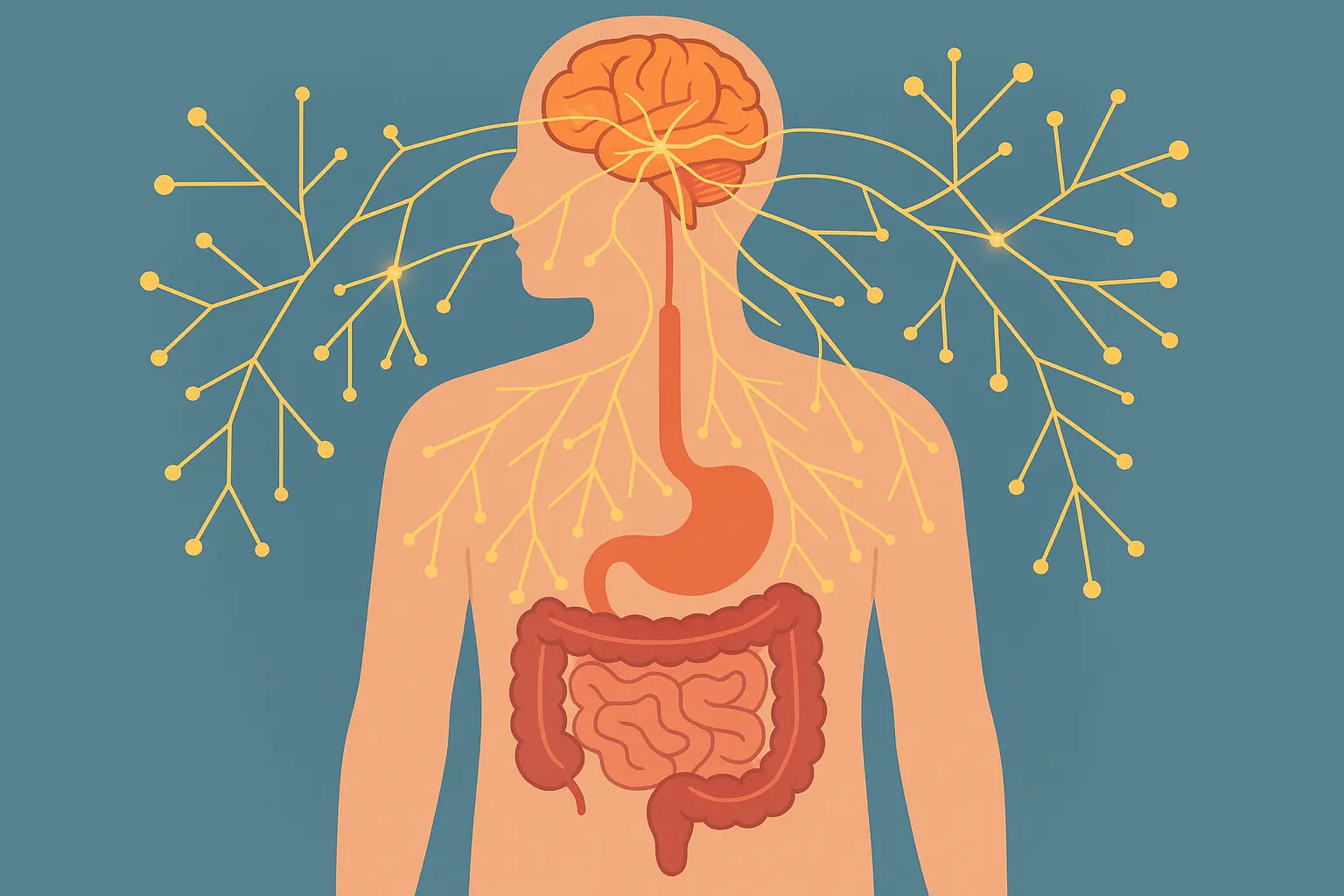
Your Gut and Brain Are Constantly Texting Each Other
You know that awful feeling when you haven’t had a bowel movement in three days and suddenly everything you eat makes you queasy? That’s not just in your head. Your gut and brain are literally having a conversation, and when you’re constipated, your gut is basically screaming “HELP!” to your brain.
Think of your gut like it has its own brain – because it literally does! It has more nerve cells than your spinal cord. When things get backed up down there, this “second brain” starts sending panic signals to your actual brain through what’s called the vagus nerve.
Understanding hidden digestive systems helps explain why constipation affects way more than just your bathroom habits. Your digestive tract is constantly monitoring what’s going on and reporting back to headquarters.
The Vagus Nerve: Your Body’s Internal Hotline
The vagus nerve is like a high-speed internet connection between your constipated gut and your brain’s nausea control center. When you’re backed up, this nerve carries a constant stream of “something’s wrong!” messages directly to your brain stem, making you feel queasy through pure neural communication.
It’s pretty incredible when you think about it – your gut can literally “talk” to your brain faster than you can even process what’s happening. This explains why stress can make constipation worse, while being constipated makes you feel anxious and nauseous. It’s all connected.
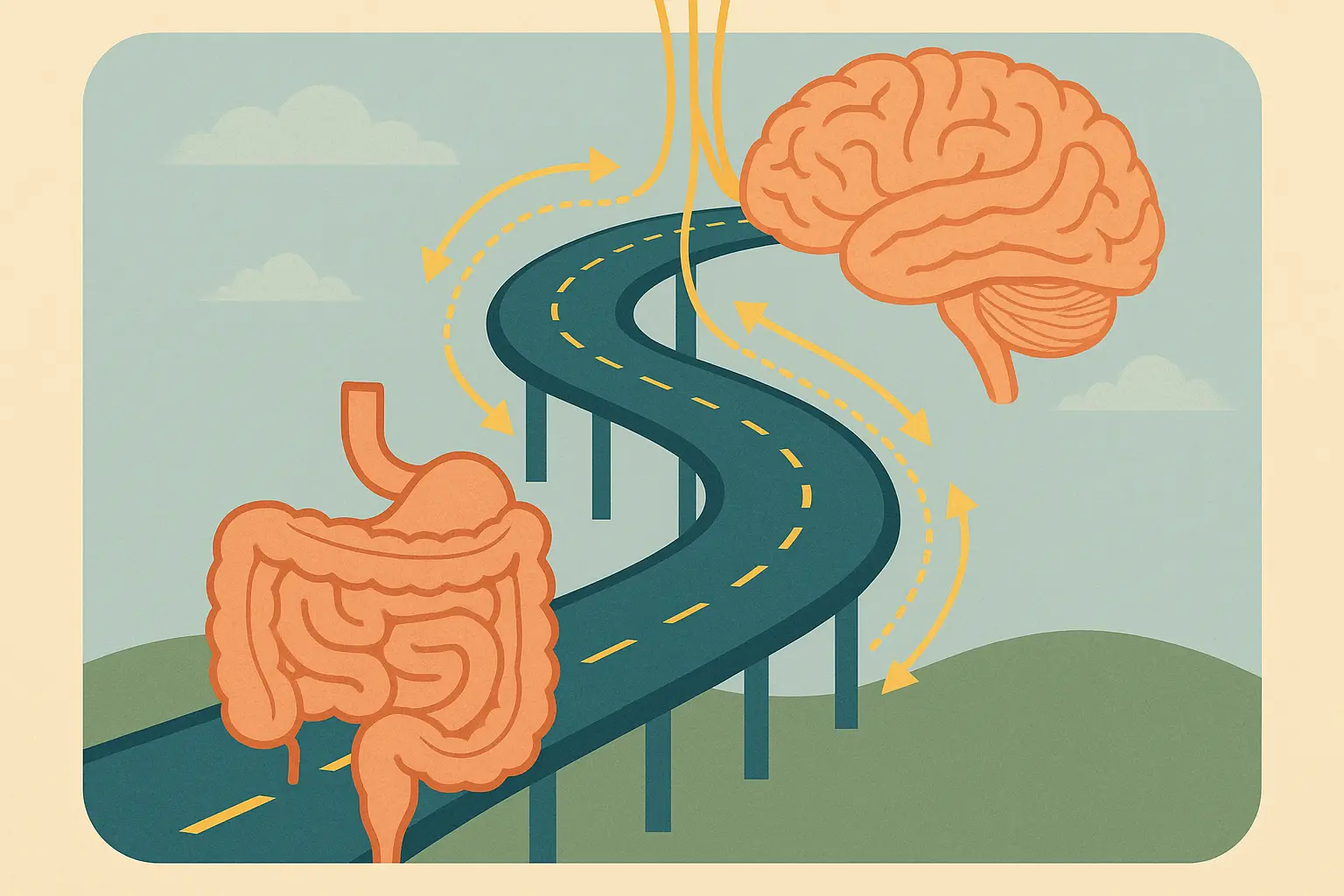
When Your Intestines Won’t Stop Complaining
All that backed-up waste keeps stretching your intestinal walls, which have sensors that detect when things aren’t moving like they should. These sensors keep firing off alarm signals through the vagus nerve, and your brain interprets this constant barrage as a serious threat. So it does what brains do – it makes you feel nauseous to protect you from what it thinks might be poison.
Research from the University of Washington found that “gut microbiome composition changed according to stool frequency” Woman and Home. This shows how constipation literally changes your body’s internal ecosystem, creating the perfect storm for nausea.
Your Chill-Out System Stops Working
When you’re chronically constipated, your body’s “rest and digest” mode gets completely thrown off. This creates a vicious cycle where poor digestion makes both constipation and nausea worse. Your body can’t properly coordinate all the complex stuff that needs to happen for normal digestion.
Take Sarah – she’s probably a lot like you. Working long hours, stressed about deadlines, grabbing lunch at her desk. She started holding it when nature called because she was too busy for bathroom breaks. Big mistake. Within a week, she was waking up nauseous every morning, dreading breakfast because food made her feel worse. Her gut was literally texting her brain that something was seriously wrong, creating a cycle where stress made her constipation worse, which increased her nausea, which created more stress.
Your Brain Chemistry Gets All Messed Up
Here’s something that’ll blow your mind – your intestines actually make 95% of your body’s serotonin. You know, that “feel good” chemical everyone talks about? When you’re constipated, this production goes completely haywire, sending irregular serotonin signals throughout your system that directly trigger nausea in your brain.
The disruption of brain chemical production during constipation particularly affects GABA levels, which are crucial for keeping your nervous system calm and preventing anxiety-induced nausea. When GABA drops, you become hypersensitive to every little digestive sensation.
Your Feel-Good Chemicals Go Haywire
When you’re constipated, your gut can’t produce serotonin properly. Instead of steady, normal levels, you get these weird spikes and drops that directly mess with your brain’s nausea control center. It’s like your internal mood lighting is flickering on and off.
Here’s what happens to the chemicals in your brain when you’re constipated:
- Your gut stops making enough serotonin (the “feel good” chemical)
- GABA levels drop, making you more anxious and nauseous
- Dopamine gets blocked, so nothing feels satisfying
- Everything just feels… off
Your Calming Chemicals Disappear
Constipation kills off the good bacteria that produce GABA – your brain’s primary “chill out” chemical. Without enough GABA, you develop anxiety that makes nausea feel ten times worse. It’s like losing your body’s natural ability to tell you “everything’s okay.”
Your Reward System Gets Jammed
All that backed-up waste interferes with dopamine signaling in your gut. Dopamine normally helps suppress nausea and makes you feel satisfied after eating. When it’s not working right, your brain loses its natural ability to feel good about your digestive state.
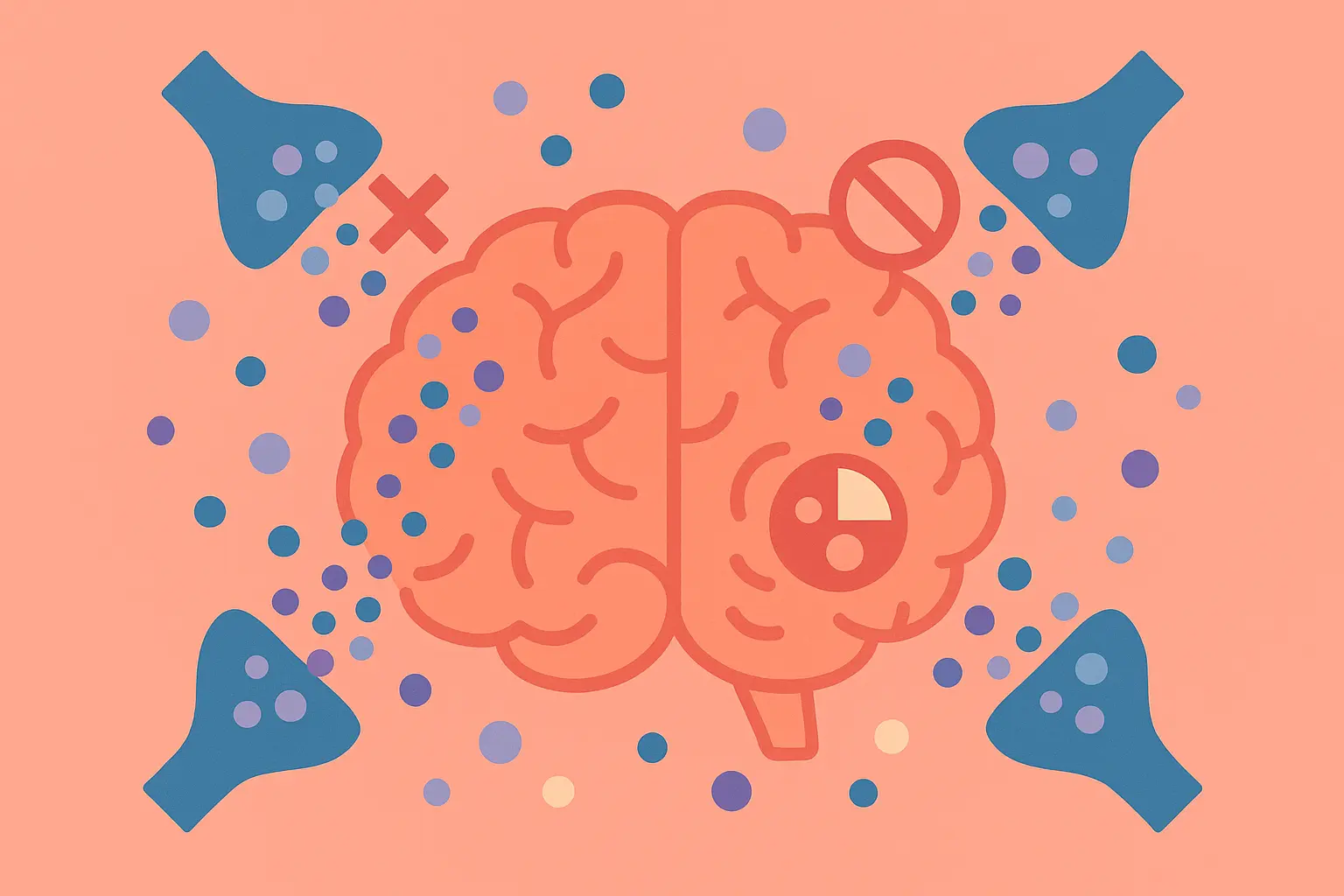
Your Body Starts Fighting Itself
When you’re constipated for a while, your body starts pumping out stress chemicals that make you feel sick all over. These inflammatory molecules travel through your bloodstream and can actually reach your brain, directly triggering your nausea control centers.
Stress Chemicals Flood Your System
All that stagnant waste releases inflammatory molecules into your bloodstream. These chemicals can cross into your brain and directly stimulate your nausea centers, making you feel like you’re getting sick even when there’s nothing actually wrong with your stomach.
Recent research highlighted by “NYU Langone’s Inflammatory Bowel Disease Center” NYU Langone emphasizes that “nausea and vomiting after eating can be a symptom of IBD, especially Crohn’s disease.” This shows how digestive inflammation creates complex nausea responses that many people just accept as normal.
How Being Backed Up Messes With Your Body Chemistry
So here’s the thing about constipation – it doesn’t just affect your bathroom habits. It creates this domino effect that completely throws off your body’s internal chemistry. What starts as just being “backed up” quickly becomes a full-scale chemical mess that makes nausea pretty much inevitable.
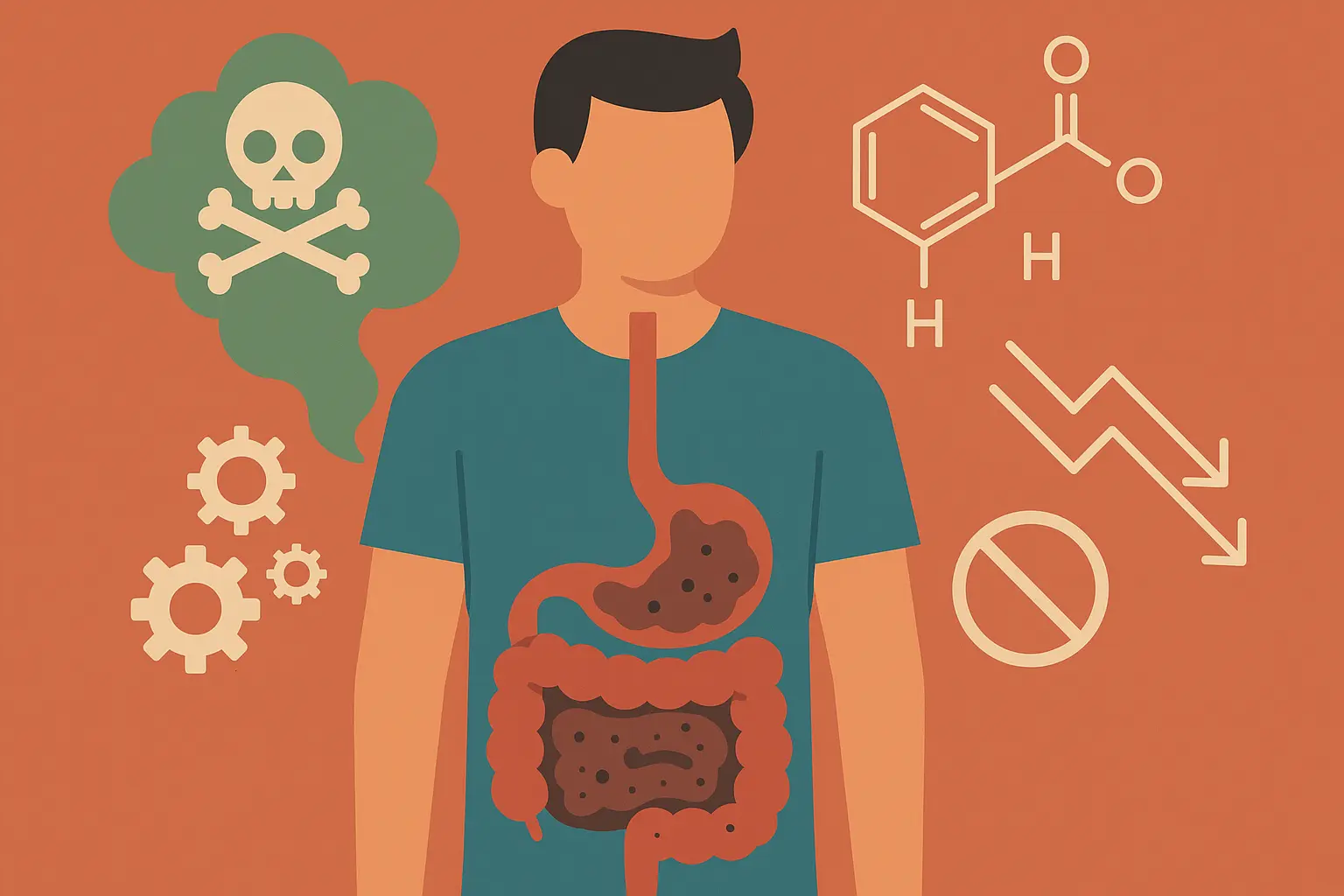
Your Body Starts Poisoning Itself
When waste can’t get out the normal way, your colon starts reabsorbing toxic stuff back into your bloodstream. It’s like your body is recycling its own garbage, and your brain is not having it. This triggers multiple nausea pathways as your body desperately tries to protect itself from what it thinks is contamination.
Your liver works overtime trying to process all these reabsorbed toxins, but it can’t keep up with the constant influx. Meanwhile, your brain is getting chemical signals that something is seriously wrong.
Toxic Buildup Makes Your Brain Panic
When you’re constipated, bacteria in your gut start producing excessive ammonia and other nasty byproducts. These enter your bloodstream and create a mild toxic state that your brain recognizes as potentially dangerous. So it triggers nausea as a protective response to prevent you from taking in anything else that might make the situation worse.
According to research cited by Woman and Home, “lactose intolerance accounts for 30% of constipation cases.” This shows how dietary factors can create toxic fermentation processes that contribute to both constipation and the resulting nausea.
Your Brain’s Poison Detector Goes Off
Constipation produces compounds with names like indole and skatole (they’re as nasty as they sound). These directly stimulate your brain’s “poison detection center,” which is literally designed to make you nauseous when it thinks you’ve been poisoned. Even though you haven’t actually eaten anything bad, your brain doesn’t know that.
Mark, a 28-year-old who frequently ignored his body’s urge to go during long work meetings, developed severe constipation that lasted over a week. As toxic stuff built up in his system, he felt nauseous all day, getting worse as the day went on. His brain was literally detecting the accumulated toxins and making him feel sick to prevent what it thought was further poisoning.
Your Body’s Electrical System Goes Haywire
Being constipated for a while throws off your body’s delicate balance of electrolytes – the minerals that help your nerves and muscles work properly. These imbalances directly mess with your brain’s nausea control mechanisms, creating perfect conditions for feeling queasy all the time.
Electrolyte problems during constipation particularly affect magnesium levels, which are essential for proper nerve function and digestive movement. When magnesium drops, your entire nervous system becomes hyperexcitable, making nausea feel way worse.
Here’s how constipation messes with your body’s electrical balance:
Magnesium Deficiency – Constipation both causes and results from low magnesium, trapping you in a cycle where you need magnesium to have normal bowel movements, but being constipated depletes the magnesium you need.
Potassium Problems – When your bowels aren’t moving regularly, your potassium-sodium balance gets thrown off, affecting nerve signals throughout your body, especially the ones that control nausea.
Sodium Retention – Your body tries to compensate for dehydration by holding onto sodium, which creates fluid imbalances that affect how your brain functions.
Calcium Disruption – Changes in gut pH and poor absorption impact muscle contractions throughout your digestive tract.
The Magnesium Trap
This one’s particularly frustrating – constipation causes magnesium deficiency, but you need magnesium to have normal bowel movements. It’s like being stuck in a loop where the thing that would help fix your problem is exactly what the problem is preventing you from getting enough of.
Your Nerves Can’t Communicate Properly
When your electrolyte balance is off, the nerves that control nausea can’t function normally. It’s like trying to have a phone conversation with a bad connection – the signals get garbled, and your body defaults to “something’s wrong, better feel nauseous just in case.”
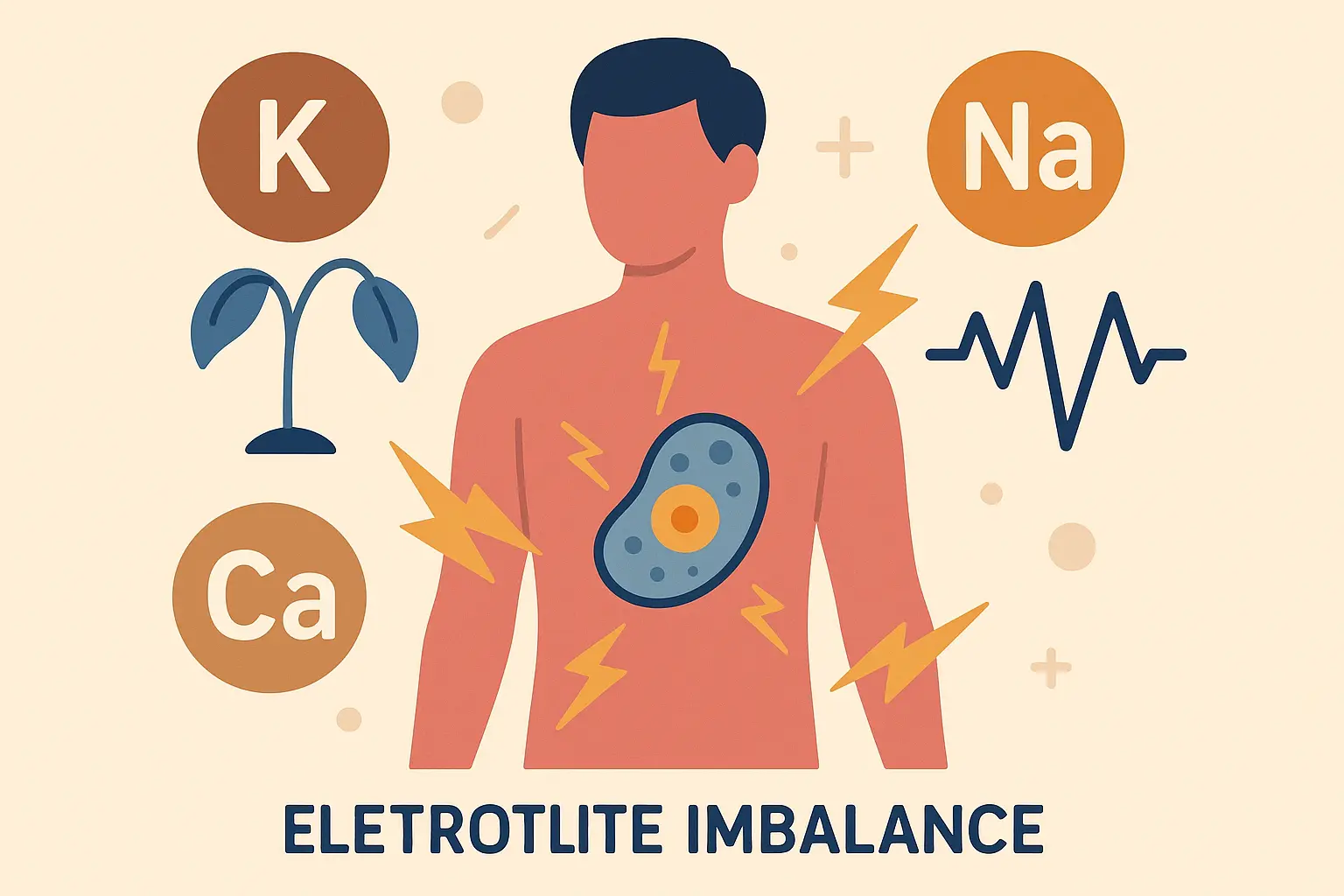
When Internal Pressure Gets Out of Hand
Being constipated isn’t just about feeling “full.” It creates real mechanical pressure that squeezes your organs and disrupts normal body processes. It’s like trying to blow up a balloon that’s already full – eventually, something’s gotta give, and your body responds to that pressure by making you feel nauseous.
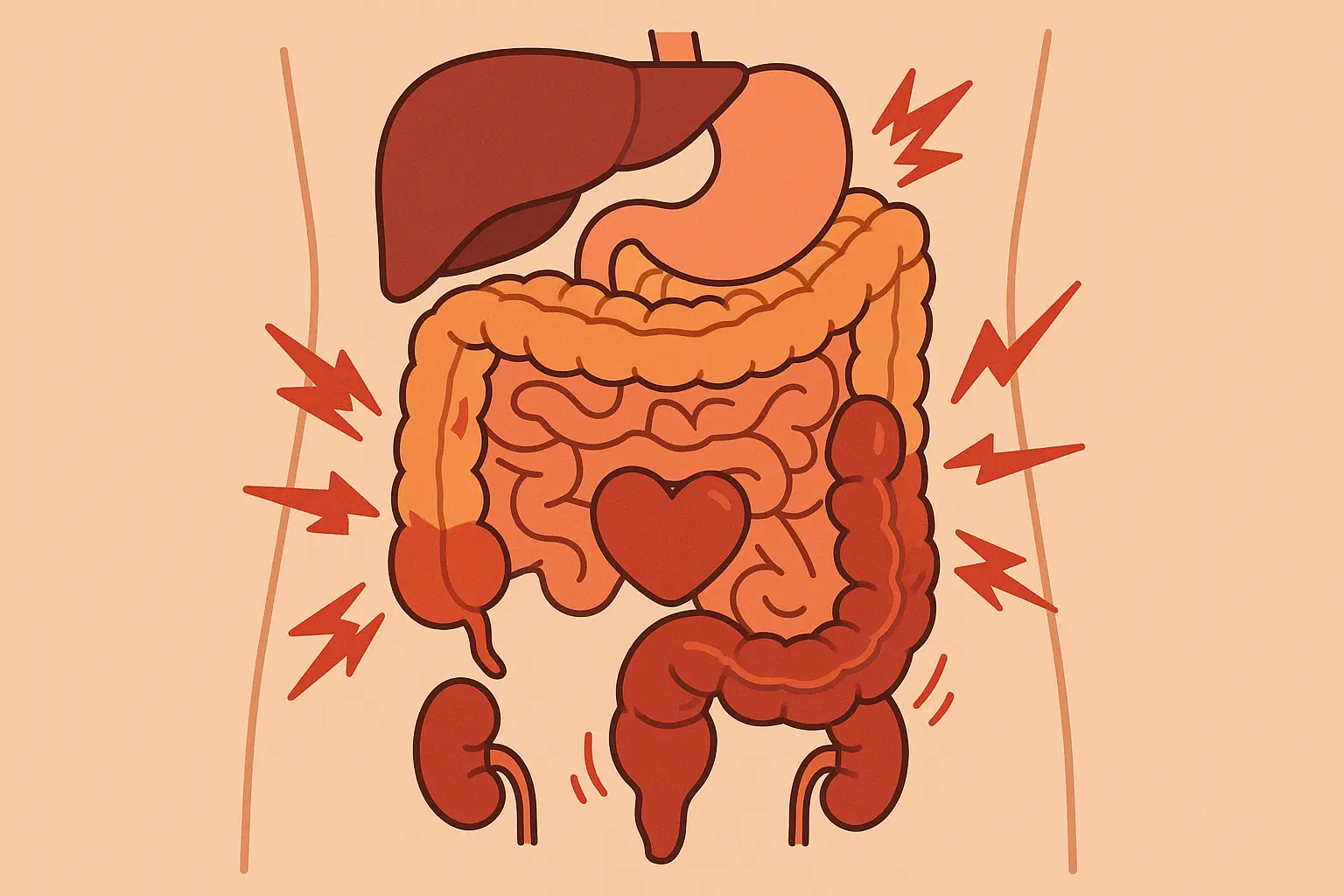
Your Diaphragm Gets Squeezed
All that backed-up waste pushes upward against your diaphragm, messing with your normal breathing patterns. Your body has sensors that detect this abnormal pressure, and when they go off, your brain interprets it as danger and automatically triggers nausea as a protective response.
Think about it – your diaphragm is supposed to move freely up and down when you breathe. When constipation creates pressure from below, it’s like someone putting a weight on your chest. Your body doesn’t like that one bit.
You Can’t Breathe Properly
When your abdomen is distended from constipation, you’re forced into shallow breathing patterns that reduce oxygen delivery to your brain. This creates a low-oxygen state that directly stimulates nausea centers through your body’s built-in oxygen-monitoring system.
Healthcare professionals report that “around 1 in 10 patients taking ibuprofen will experience constipation” PrimeHealth Denver. This shows how medication-induced constipation can create the mechanical pressure problems that lead to breathing issues and subsequent nausea.
Your Heart Has to Work Harder
Severe constipation can actually compress blood vessels, making it harder for blood to return to your heart. Your body interprets this cardiovascular stress as a threat and triggers nausea through heart-related reflexes. It’s your body’s way of saying “something’s not right here.”
Your Entire Digestive System Stops Cooperating
Here’s what’s really wild – constipation doesn’t just affect your colon. It creates a backup effect throughout your entire digestive system, fundamentally changing how your stomach processes food and triggering nausea through disrupted stomach rhythms.
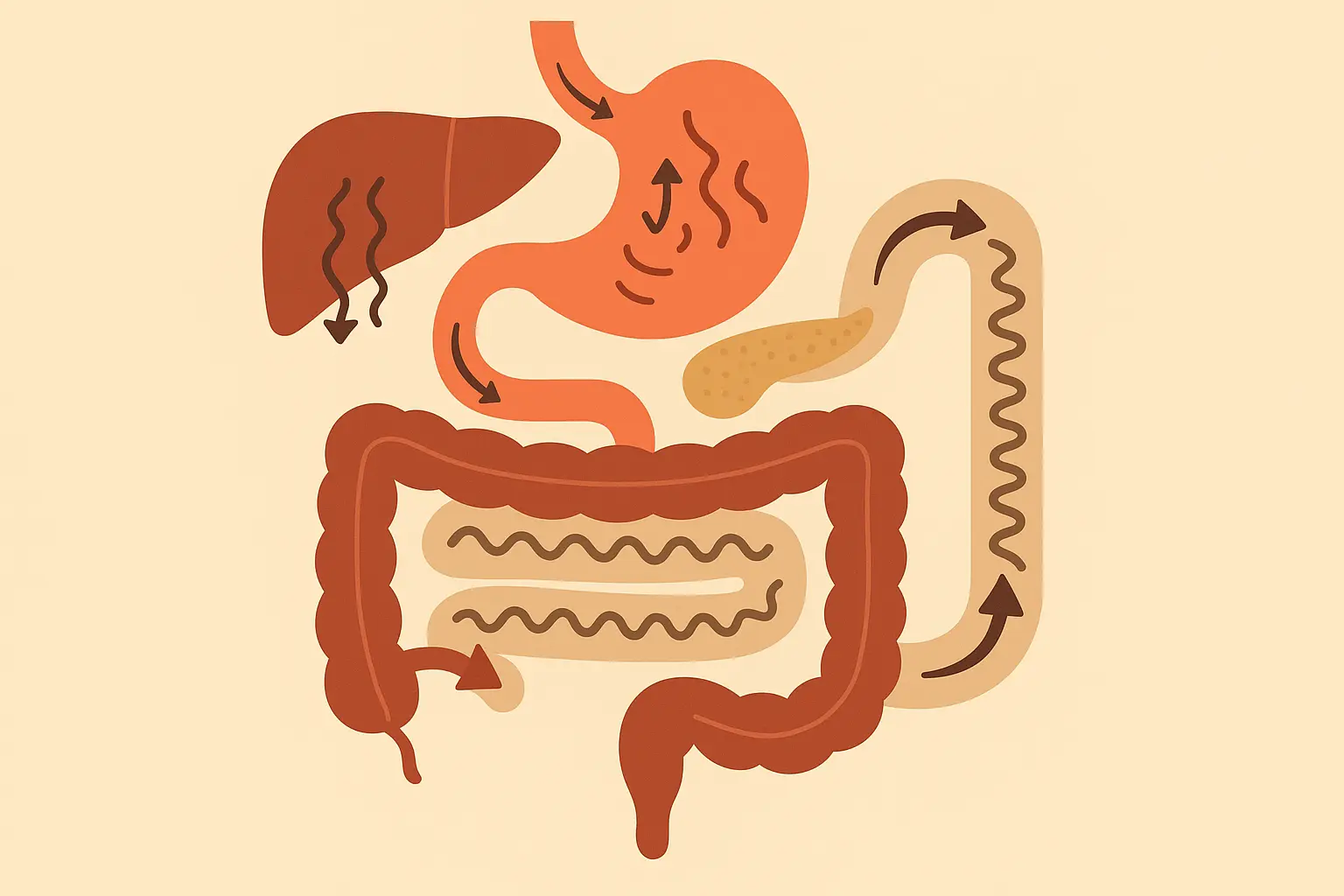
Your Digestive System’s Natural Cleaning Waves Break Down
Your digestive system has these natural cleaning waves that sweep through every 90-120 minutes when you’re not eating, clearing out debris and getting ready for the next meal. When you’re constipated, these waves get disrupted, so food sits in your stomach way longer than it should.
It’s like having a dishwasher that can’t drain – eventually, everything backs up and nothing works properly.
Your Stomach’s Exit Gets Jammed
The backup pressure from constipation can cause the valve at the bottom of your stomach to malfunction, trapping partially digested food. This makes your stomach stretch, which activates sensors that are directly linked to your brain’s nausea centers.
Jennifer, a 42-year-old teacher, noticed that her chronic constipation made her feel nauseous every time she ate. The backup pressure in her digestive system was preventing her stomach from emptying properly, so even small meals left her feeling queasy. Her stomach’s exit valve couldn’t function normally under all that pressure from her constipated colon.
When Your Body Says ‘Enough!’ – Why Some People Actually Throw Up
Look, I’m not trying to scare you, but sometimes constipation gets so bad that your body literally makes you throw up. It’s not because there’s anything wrong with your stomach – it’s your body’s desperate attempt to relieve pressure and get things moving again. Think of it as an emergency reset button.
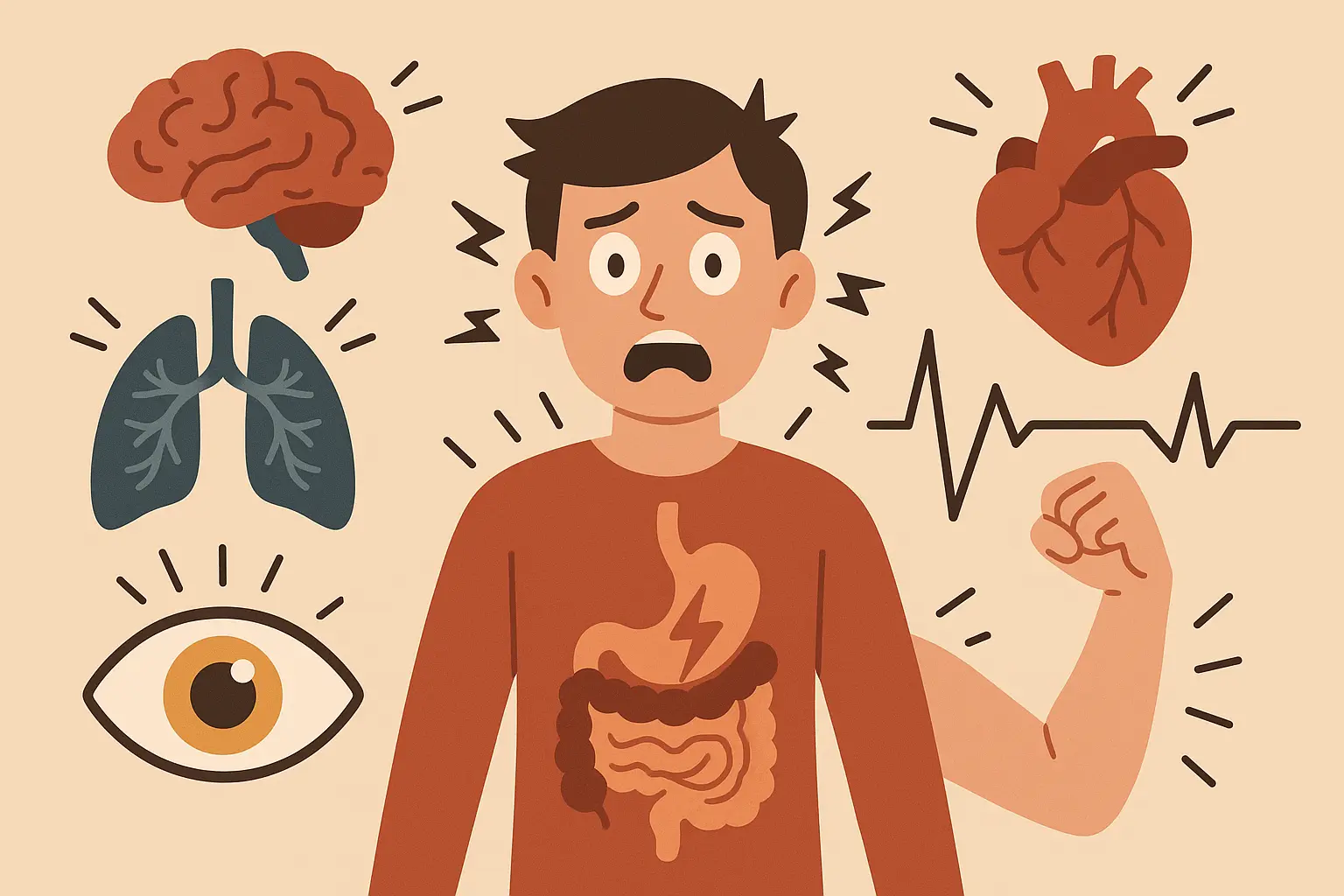
Your Body’s Emergency Protocols Kick In
When constipation reaches critical levels, your body has backup mechanisms that can trigger vomiting to relieve dangerous internal pressure. Essentially, your system uses reverse digestive action to restore balance when normal processes have completely failed.
Your nervous system is constantly monitoring internal pressure, and when things cross certain thresholds, it activates emergency protocols you can’t consciously control. It’s like your body saying “okay, plan A isn’t working, time for plan B.”
Everything Goes in Reverse
Severe constipation can actually make your digestive tract reverse its normal wave-like contractions, forcing contents upward through vomiting when normal downward movement becomes impossible. It’s your body’s way of creating space and relieving pressure when there’s nowhere else for things to go.
Medical experts at NYU Langone note that “Crohn’s disease can lead to long-term inflammation that can cause a stricture, which is a narrowing in the small intestine that can lead to a blockage over time.” This explains how severe digestive blockages can force the body into emergency vomiting responses to prevent dangerous complications.
Your Body’s Emergency Mode Takes Over
Your nervous system can initiate emergency vomiting during severe constipation as a protective mechanism, completely overriding normal digestive processes to prevent potentially dangerous complications from excessive internal pressure.
Ever wondered why some people get so nauseous from constipation that they actually throw up? It’s because your body is literally trying to save itself from what it perceives as a potentially serious situation. This emergency response bypasses all conscious control – you can’t just “decide” not to throw up when your body hits this point.
When digestive emergencies occur, your body’s nervous system responses can override normal function to protect vital organs from dangerous pressure buildup.
When to Actually Worry – Call a Doctor If You Have:
- Severe belly swelling lasting more than 3 days
- Can’t pass gas or have a bowel movement for 72+ hours
- Throwing up along with being constipated
- Sharp, stabbing stomach pain
- Heart racing or trouble breathing
- Fever with digestive problems
- Blood in your vomit or signs of severe dehydration
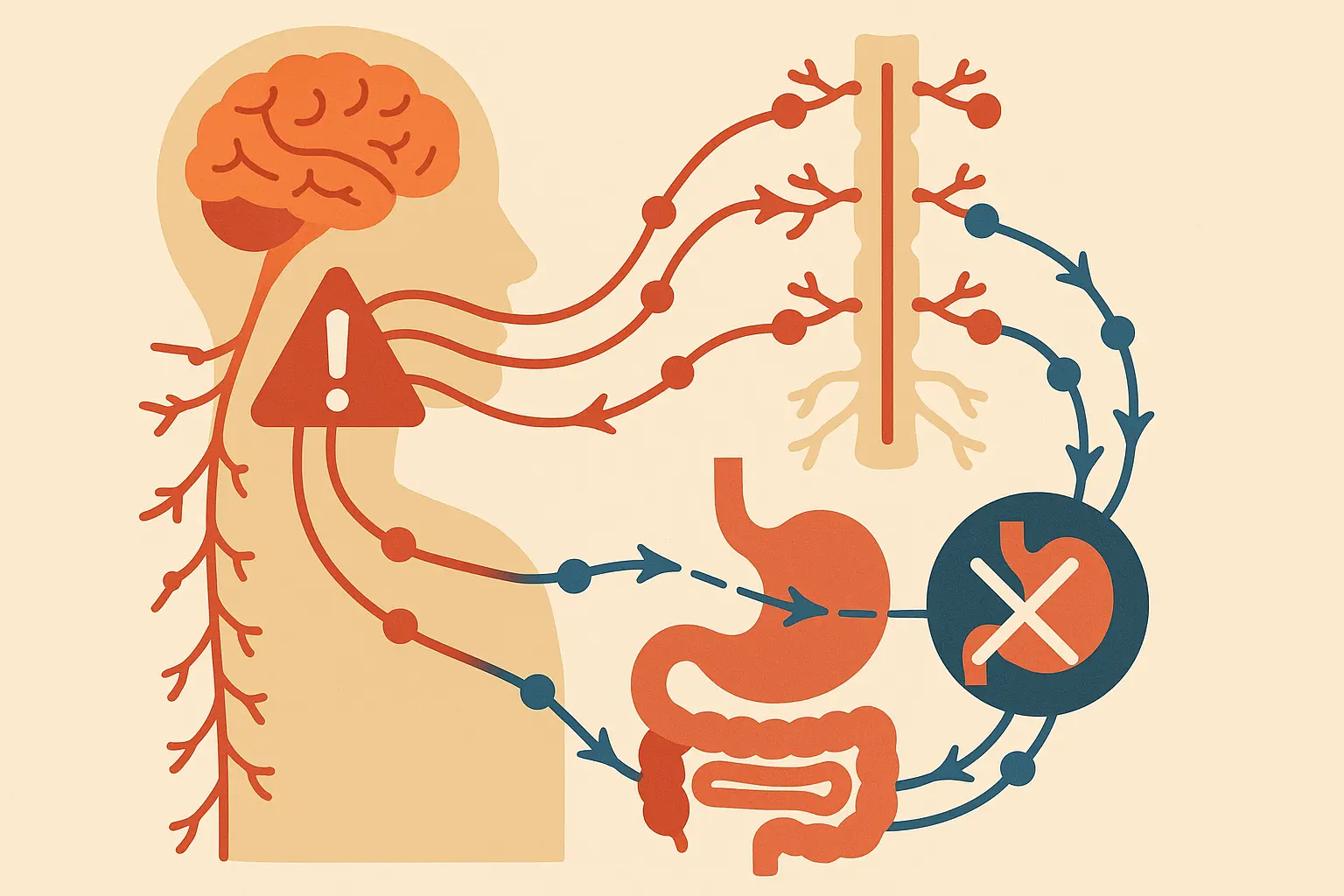
The connection between constipation and nausea shows why personalized healthcare approaches are so important for addressing these complex digestive interactions.
What This All Means for You
If you’re dealing with this right now, I get it. It sucks feeling nauseous on top of being constipated. Your body isn’t broken – it’s just trying to tell you something important through these symptoms. The nausea is actually your body looking out for you, even though it feels terrible.
The relationship between constipation and nausea is way more complex than most people realize. Your entire body’s systems get thrown off when normal digestive processes break down – it’s definitely not just about feeling “backed up.”
Your gut-brain connection, brain chemistry, metabolism, and even your heart all get disrupted when constipation sticks around. Understanding these connections helps explain why simple laxatives often aren’t enough to completely solve the problem.
The good news? Once you understand what’s happening, you can start addressing the real problem instead of just popping antacids and hoping for the best. Your body is incredibly smart – when it makes you feel nauseous because you’re constipated, it’s trying to protect you and get your attention.
Have you noticed patterns in when your constipation-related nausea gets worse? Maybe it’s worse in the morning, or after certain foods, or during stressful times? Paying attention to these signals can help you identify triggers and work with healthcare providers to address the root causes rather than just treating symptoms.
Remember, your gut and brain are constantly talking to each other. When you’re constipated, your gut is basically sending your brain urgent messages that something needs attention. The nausea isn’t just an annoying side effect – it’s part of your body’s sophisticated communication system trying to help you feel better.
